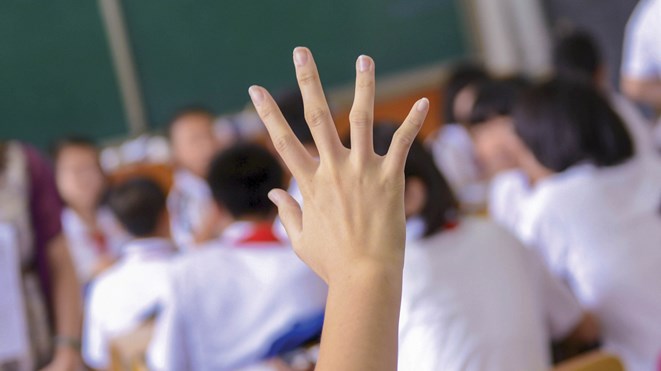The Ontario COVID-19 Science Advisory Table has issued a report suggesting that Ontario children, more so than children in other parts of Canada, will find their education has been significantly disrupted by the pandemic.
The science table is a group of scientific experts and health system leaders who evaluate and report on emerging evidence relevant to the COVID-19 pandemic.
One of the most recent reports focuses on how the multiple school closures have "profoundly disrupted" the education process. From March 14, 2020 to May 15, 2021, Ontario schools have been closed for 20 weeks total, longer than any other Canadian province or territory, said the report.
Another problem according to the report were the inequities that arose out of mass school closures in some areas and localized closures in other places; multiple models of education and gaps in support for students with disabilities.
"The unequal distribution of school closures and pandemic-associated hardships, particularly affecting low-income families in which racialized and Indigenous groups, newcomers and people with disabilities are overrepresented, appear to be deepening and accelerating inequities in education outcomes, wherever data have been collected. Further, there are health risks associated with closures including significant physical, mental health and safety harms for students and children," said the report.
It added that this could create long-term impacts on students’ lifetime earnings.
The report also said international evidence is suggesting that the closures will impact children's academic achievement and lead to learning losses.
"The duration of closures impacts academic achievement and learning. There is widespread consensus from families, educators, and children themselves that students learn better in person than online, and that access to online learning is a challenge for many due to technical, economic, or other barriers.
The report also revealed there are substantial date gaps on the closures and the impact on students. For example, the report noted there was no data available for how many students were enrolled in remote, or enrolled in in-person learning, in the 2020 to 2021 school year.
It was mentioned that the Lakehead District School Board had 16 per cent of students opting for online classes in October 2020, while Peel District had 49 per cent of students in online classes, also in October. But then as the school year progressed, students began switching between online and in-person classes. But no further data is available.
The report also stated there is considerable variation in how remote schooling was delivered. For example, some school boards adopted a ‘hybrid’ model while others have rejected simultaneous online and in-person instruction. There is no system-wide data on the extent of this model in Ontario, nor evaluations of learning impacts of hybrid relative to other forms of remote learning, said the report.
There are some solutions being offered, said the report.
"First, a strong priority, as expressed by numerous medical officers of health, on keeping schools open wherever circumstances allow – a ‘last closed, first open’ policy. Keeping schools open in the context of new, more transmissible and more deadly variants of concern requires renewed and intensified commitment to a range of safety practices and accelerated vaccination of all education workers, parents and children as vaccines are shown to be safe and effective" the report stated.
"Second, there is a need for explicit education recovery strategies to be funded in addition to regular schooling budgets. Strategies may include active measures to ensure appropriate universal responses (overall curriculum adaptations, instruction, and student supports), and targeted intensive accelerated learning programs for groups that have been most disadvantaged by health and education effects of COVID-19." the report concluded.
The full text of the science table briefing can be found online at the science table website.
